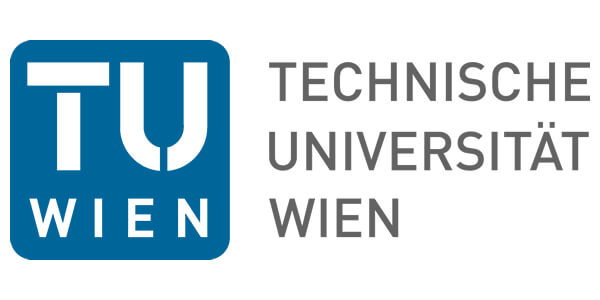|
Nov 4, 2025
TU
|
Luca Mrini
(Uni Wien)
|
Canonical Quantization of Singular Spaces: Symmetry Reduction, Mass Gap Bounds, and Non-smooth Calculus
We study the canonical quantization of singular configuration spaces and identify natural generalizations of the core structures of quantum mechanics. In this way, we propose new tools to probe non-perturbative quantum properties of singular systems, including those arising from symmetry constraints and gauge theories. Under minimal assumptions, we construct a Hilbert space of quantum states, generalized position and momentum operators, a kinetic-plus-potential Hamiltonian, and unitary quantum dynamics for such systems. Our approach is based on the non-smooth calculus of metric-measure spaces formalized over the past 15 years [Gigli, Pasqualetto 2020]. Our main result is a new technique to bound the mass gap of certain singular systems obtained via symplectic reduction by analyzing the curvature of the non-reduced configuration space. We illustrate our method for the harmonic oscillator constrained to zero angular momentum, lattice Yang-Mills theory, and a toy model for dimensional regularization.
|
|
Nov 11, 2025
UV
|
Fabrizio Olmeda
(ISTA)
|
Phase behavior of complex mixtures: Application to cacio e pepe
Phase separation has a wide range of applications—including some surprisingly culinary ones. In this talk, I will provide an overview of the state-of-the-art of phase separation in complex mixtures and how to theoretically and numerically characterize phase boundaries and out-of-equilibrium dynamics. To illustrate this, I will focus on a classic Italian dish: Pasta alla Cacio e Pepe, traditionally made with pecorino cheese and black pepper. I will present a systematic exploration of the phase behavior of the sauce, examining its stability at increasing temperatures across various proportions of cheese, water, and starch.
|
|
Nov 18, 2025
TU
|
Maximilian Prüfer
(TU Wien)
|
Quantum-limited measurements for open quantum simulators
Quantum measurements are typically implemented by coupling an isolated system to an auxiliary meter. Weak, repeated measurements therefore offer a promising route toward controllable open quantum simulators. I will present tunnel-coupled superfluids as a platform for simulating quantum fields, where optimal control techniques enable the preparation of tunable, entangled initial states. A quantum-limited generalized measurement scheme is introduced to probe quantum properties and dynamics. Finally, I will discuss progress toward implementing repeated and continuous local measurements, paving the way for fully controllable open quantum simulators.
|
|
Nov 25, 2025
UV
|
Tim Lüders
(Uni Wien)
|
Higher Hilbert spaces and reflection positivity
In the functorial axiomatization of (fully local) quantum field theory, unitarity or its Wick-rotated analogue reflection positivity is encoded using (higher) dagger categories, such as those of (higher) Hilbert spaces. In this talk, I will review the one-dimensional theory and outline generalizations to higher dimensions. In particular, we will start with the dagger category of Hilbert spaces and progress to a natural categorification, von Neumann algebras, highlighting their role in QFT starting from a duality-based topological perspective.
|
|
Dec 2, 2025
TU
|
Carina Karner
(TU Wien)
|
Learning Order: Can Neural Networks Discover Phase Transitions Without Symmetry Functions?
Phase transitions in soft matter systems — from crystallization to gelation — arise from collective particle rearrangements that are challenging to capture in full microscopic detail. Conventional approaches rely on physically inspired order parameters or symmetry functions to characterize emerging structures, but such descriptors may overlook crucial features in the often complex organisation of biolgical materials or synthetic super-structures. Here we investigate whether machine learning can uncover these hidden features directly from raw particle configurations. Using variational autoencoders trained on simulated trajectories of serveral soft matter systems, we show that the latent space encodes clear signatures of structural transitions without the need for handcrafted inputs. Our results suggest that neural networks can serve as unbiased tools to detect and interpret phase behavior in complex soft matter systems, revealing patterns that elude traditional symmetry-based analysis.
|
|
Dec 9, 2025
UV
|
TBA
|
Title
Abstract
|
|
Dec 16, 2025
TU
|
Matteo Ciardi
(TU Wien)
|
Title
Abstract
|
|
Dec 23, 2025
|
NO SEMINAR
|
|
|
Dec 30, 2025
|
NO SEMINAR
|
|
|
Jan 6, 2026
|
NO SEMINAR
|
|
|
Jan 13, 2026
TU
|
Florian Ecker
(TU Wien)
|
Title
Abstract
|
|
Jan 20, 2026
UV
|
TBA
|
Title
Abstract
|
|
Jan 27, 2026
TU
|
Benedikt Schwarz
(TU Wien)
|
Title
Abstract
|


